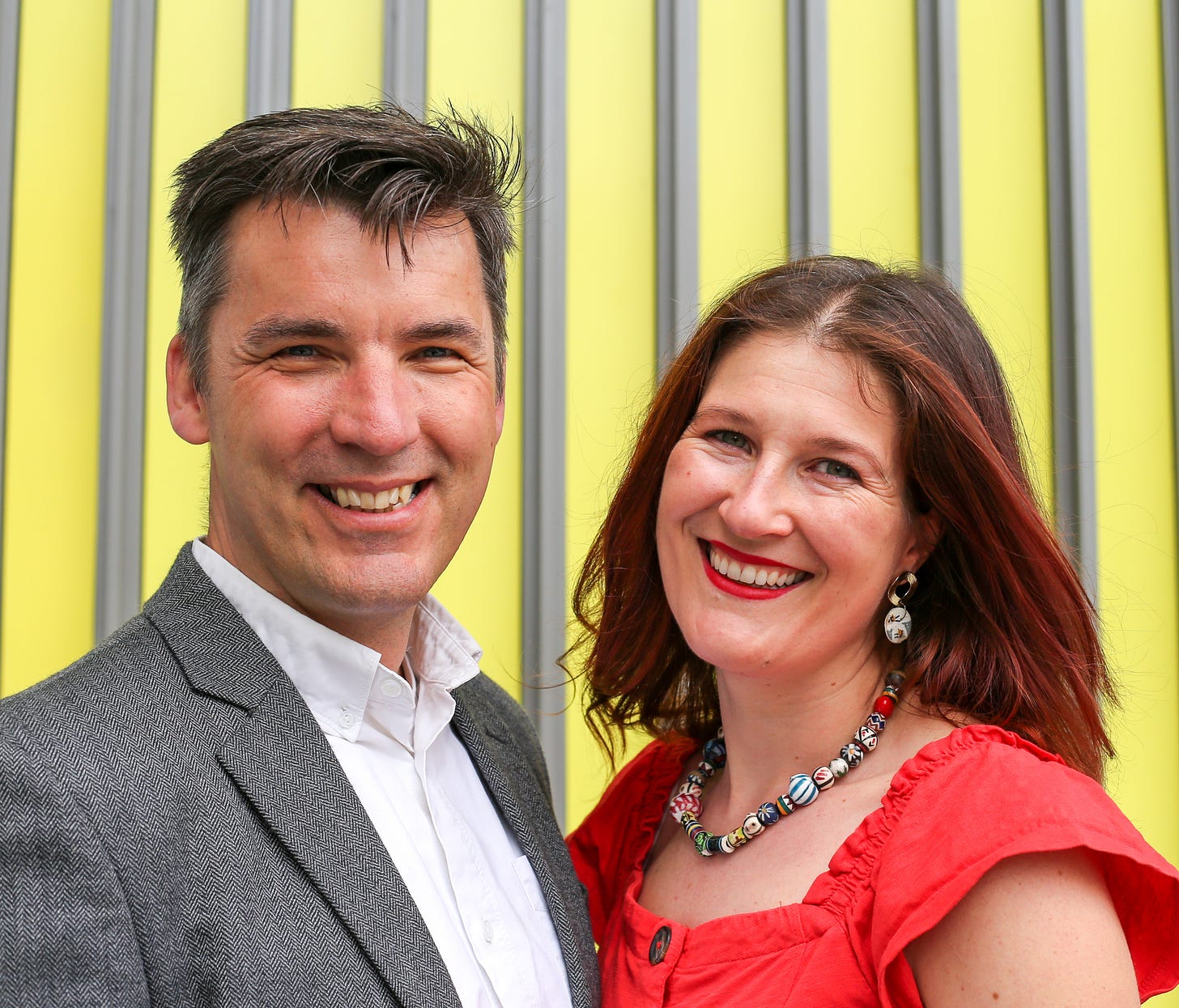2024 reflections / 2025 projections
by Caroline Danks
Picture description - my planner for this year is the Happy Planner Disney Edition #sorrynotsorry
I thought it would be worthwhile to take a moment to gather my thoughts on the year just passed, and to think about what may lie ahead. It feels like a great way to kick off the new year.
Reading other people’s ‘year in review’ posts is one of my favourite things and whilst this is just a summary, I hope you enjoy this personal deep dive. Maybe you share some of my thoughts and concerns, maybe you disagree?
Enough pre-amble – let’s go…
2024 – the year of big change in the trusts and foundations sector
I could never have predicted that 2024 would be the year that trusts and foundation fundraising would change beyond all recognition. Trust fundraising is a mainstay of my practice, my expertise, my income and (for better or worse) in part, my identity.
So this felt like a big deal.
The closure of many large trusts which disproportionately affected a crucial segment of the For Impact sector led me to re-assess so much of my work, and as a result I adapted the advice and the services we offer to clients.
An example of this is that we have now closed our two self-led online fundraising courses.
Trust the Process has been an amazing resource for so many fundraisers and I’m proud that LarkOwl been the first* company to have launched and sold an online self study fundraising course in the UK.
*I’m pretty confident we were the first – happy to be challenged though…
Its promise of ‘follow the instructions and you’ll be successful’ is not a guarantee I feel I can stand by in 2025.
The variables are too numerous and too complicated to be so black and white about it.
There’s a chance that a charity can give trust fundraising a try for the first time and do all the right things, but because of factors outside of their control, still not get what they need from it.
Online training is awesome and still an important option in the market. It’s helpful for some individuals and some charities – but not all. Our course marketed itself as providing a very specific solution to a very specific problem. One that I can no longer guarantee.
2024 was the year I found clarity
I feel as if I’ve finally truly understood some deep truths about the society in which we live.
These have been long known.
The difference is that my head is no longer in the sand.
Every year we cite the ‘challenges’. - austerity, Brexit, Covid-19, the cost of living crisis. I finally feel like I can see the stealth enshittification which has occurred as a result of a compounding of these situations.
What we’re left with is what we have and it’s not ‘going back to how it was before’.
Wealthy people are either unaffected or even wealthier than they were before.
Most other people have less than they did before. It’s almost as if we’re seeing a slow eradication of the middle classes.
The government is not ‘coming to the rescue’ of charities, meaning that we’re forced to operate competitively, as if we were small businesses selling craft beer or handmade soaps. Although we want people who are most in need to receive appropriate levels of support, the truth is that help they’re likely to receive will depend on service providers’ ability to do great marketing and fundraising (regardless of the quality of impact).
It sucks.
And yet there’s a quiet peace that comes with acceptance and committing to doing the best I can within a thoroughly broken system.
There’s also a bit of fire to fight for the changes that I (and others) so desperately want to see.
Fiery peace – it makes zero sense that both can be true at the same time, and yet this is how I feel as 2025 begins.
Having said that…
2024 was not actually the unmitigated disaster it felt like at times
For trusts and foundations – there were successes.
Hurrah!
One of my clients grew their trusts and foundations programme pretty much from scratch. In 2024, they:
secured 10 gifts (total value £50,000) from mostly new donors;
submitted 48 applications in total - a 1 in 5 success rate
made the most of trustees’ personal connections.
With 3 months to go until the end of the financial year and 15 applications under consideration to the value of £55,000, I feel great about their situation.
Another client invested in a programme of small, local trust fundraising. Between June and November 2024 they:
made 44 applications to a total value of c £80,000;
of which 4 have been successful – total value £11,000;
which is a success rate of 1 in 11 (likely to be higher given that around 30 applications were sent since September and are unlikely to have been considered yet).
The charity for whom I’m a trustee grew its income substantially and for the first time, met their target level of reserves. The charity has focused mainly on trusts and grants (and a few corporate partnerships) since it began 4 years ago. Many of our donors have supported us at least once.
So yeah, loads to celebrate.
For 2025?
So where next? Here are a few thoughts…
The classics still work
Falling back on core pillars of fundraising excellence will stand you in good stead.
Innovation is important. But so are the basics (at least, that’s what I’ve found to be true this year – and every year):
Spending more time than you think you need to on research
Tailoring everything and only making an approach if there’s an obvious good fit between the potential supporter and the work your charity does
Stewardship and nurturing relationships - ideally face to face
This year I’m going to dedicate more time to stewardship (and actually have a fun idea for a real time 12-month stewardship experiment, the results of which I’m hoping to share here on the Nest Egg).
I want to personally meet more donors and spend more time in conversation with them.
Financial sustainability is more important than ever
It felt like a record number of charities closed last year – which makes sense given what I said earlier about having to exist in a competitive marketplace.
It’s therefore likely that this ‘trend’ (ugh – what a horrible word for an unpleasant situation) will continue into 2025.
As LarkOwl looks to partner with new clients, we will be even more discerning and will be considering the following (for their benefit as well as ours):
Is the charity likely to see a great ROI from working with us? We charge a premium rate (which reflects our experience and the value we create for clients through high level strategic support), but not every charity needs this and would be better focusing on other things.
Is spending money on partnering with us a good use of their resources?
How close are they to a crisis situation (i.e. are they likely to run out of money any time soon)?
Do they have sufficient short / medium term funds to provide enough of a runway into any new activities? There’s no point investing in a new area of income generation if they can’t survive for long enough to reap the benefits.
If you’re moving roles in 2025 – consider potential new employers’ financial situations very carefully.
Ask for an up-to-date financial position (accounts are often out of date).
If the charity has ‘grand plans’ ask what feasibility work they’ve done to substantiate these.
Remember that it’s not typically the job of most fundraisers to take a charity from financial crisis to thriving and sustainable.
This is the role of the trustees and the CEO.
A fundraiser is there to keep a ship steady, to grow fundraising activities which are established and already working well, to refine and optimise and to gently and sustainably test new avenues (if appropriate).
Working in a high pressure environment where you’re being asked to move mountains is unfair and unrealistic – don’t put yourself in that position if you can avoid it.
Health and wellbeing is a non negotiable
Some plague entered our house between Christmas and New Year – nothing too appalling, but enough to put plans on hold whilst we weathered the fever and coughing.
Anyone else? Sounded like there was a lot going around…
Whilst not all illnesses can be planned for or ridden out with a concoction of echinacea, bonus sleep and complaining, there are things that I as a privileged middle class white woman of a certain age can do to support my health.
For me, this looks like:
Moving towards a more plant based diet (I’ve had periods of veganism in the past largely driven by environmental concerns but am now more convinced by the health benefits as well)
Curtailing my drinking significantly
Daily dog walks and multiple gym sessions each week
Trying to remember to take vitamin D in the morning and magnesium at night
Maintaining a sustainable workload
I know. What an absolute bore.
But LarkOwl’s sickness policy is non-existent. If we’re not well and can’t work, we don’t get paid.
Its taken many years to shed the capitalistic notion of a 40 hour work week and to design a workday which includes exercise, fresh air and a decent lunchbreak as standard.
This is due to a combination of the freedom of self employment and the confidence of having done my job for many years to know that I’m good at it.
Having experienced a few minor health snafus in 2024 (none of which transpired into anything major) AND having seen colleagues and friends with infinitely more stressful lives succumb to illness, I’m all for a more sustainable day to day in 2025
Whilst most of us don’t have the luxury to optimise our workdays entirely (especially people with caring responsibilities and / or those in very reactive roles – CEO’s I’m looking at you) – there are probably small changes that we can make which will make our days a little more easeful and less frantic.
We’re open to suggestions!
Over to you, please tell us your 2024 reflections.
What stood out for you?
What do you think will be important as we move into 2025?
We’re excited to be on this journey with you. Thank you as always for welcoming us into your inboxes.





